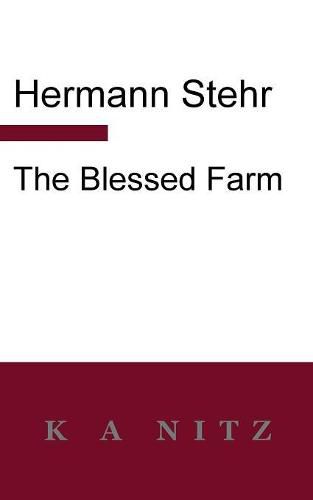Readings Newsletter
Become a Readings Member to make your shopping experience even easier.
Sign in or sign up for free!
You’re not far away from qualifying for FREE standard shipping within Australia
You’ve qualified for FREE standard shipping within Australia
The cart is loading…






This title is printed to order. This book may have been self-published. If so, we cannot guarantee the quality of the content. In the main most books will have gone through the editing process however some may not. We therefore suggest that you be aware of this before ordering this book. If in doubt check either the author or publisher’s details as we are unable to accept any returns unless they are faulty. Please contact us if you have any questions.
When a man is born, at the same moment two bells begin to toll. One bell tolls below, one above; one as it were on earth, one, as the people say, in heaven. This doubled tolling does not stop as long as we live. And according to whether the man listens more to the bell above or that below, he is good or bad, big or small, and it goes uphill or downhill with him. Some men, however, commit such a noise in the middle of their life with their business affairs or with their passions, yes, some even merely with their thoughts, that the sound of the two bells cannot reach them. Such men are stuck in the midst of the most extreme hardship which can befall a man here on earth.
–
Germany possesses in Hermann Stehr an artist of profound clarity. That which is in motion in his works, and that which stands still, seems eternal. His people are creatures who have nothing finished in themselves, but still seem to exist at the dawn of creation, unreleased in God’s iron forging hand. And there is still no plentiful sunlight over their world. … They suffer, as it were, the act of creation. - Gerhart Hauptmann, Nobel Laureate in Literature (1912)
–
Hermann Stehr (1864-1940) was a Silesian author of over thirty novels and novellas. He was awarded the Bauernfeld Prize (1910), the Fastenrath Prize (1919), the Schiller Prize (1919), the Rathenau Prize (1930), the Wartburg Rose (1932), the Goethe Medal for Art and Science (1932) and the Goethe Prize of Frankfurt-am-Main (1933); appointed as a founding member of the Prussian Literary Academy (1926); and nominated for the Nobel Prize in Literature four times.
$9.00 standard shipping within Australia
FREE standard shipping within Australia for orders over $100.00
Express & International shipping calculated at checkout
This title is printed to order. This book may have been self-published. If so, we cannot guarantee the quality of the content. In the main most books will have gone through the editing process however some may not. We therefore suggest that you be aware of this before ordering this book. If in doubt check either the author or publisher’s details as we are unable to accept any returns unless they are faulty. Please contact us if you have any questions.
When a man is born, at the same moment two bells begin to toll. One bell tolls below, one above; one as it were on earth, one, as the people say, in heaven. This doubled tolling does not stop as long as we live. And according to whether the man listens more to the bell above or that below, he is good or bad, big or small, and it goes uphill or downhill with him. Some men, however, commit such a noise in the middle of their life with their business affairs or with their passions, yes, some even merely with their thoughts, that the sound of the two bells cannot reach them. Such men are stuck in the midst of the most extreme hardship which can befall a man here on earth.
–
Germany possesses in Hermann Stehr an artist of profound clarity. That which is in motion in his works, and that which stands still, seems eternal. His people are creatures who have nothing finished in themselves, but still seem to exist at the dawn of creation, unreleased in God’s iron forging hand. And there is still no plentiful sunlight over their world. … They suffer, as it were, the act of creation. - Gerhart Hauptmann, Nobel Laureate in Literature (1912)
–
Hermann Stehr (1864-1940) was a Silesian author of over thirty novels and novellas. He was awarded the Bauernfeld Prize (1910), the Fastenrath Prize (1919), the Schiller Prize (1919), the Rathenau Prize (1930), the Wartburg Rose (1932), the Goethe Medal for Art and Science (1932) and the Goethe Prize of Frankfurt-am-Main (1933); appointed as a founding member of the Prussian Literary Academy (1926); and nominated for the Nobel Prize in Literature four times.